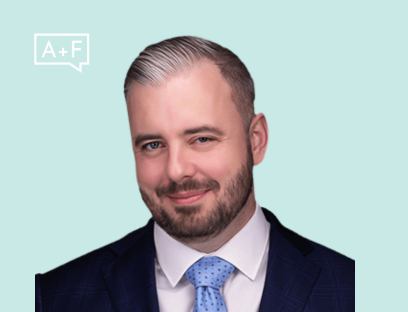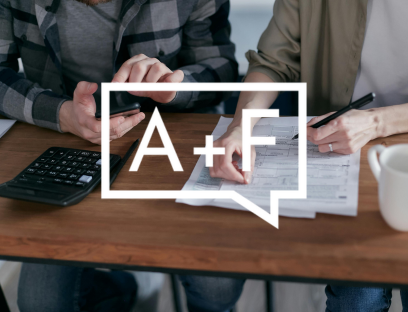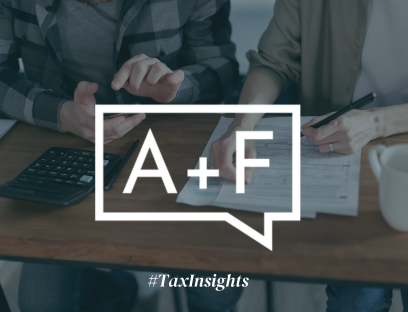At A+F Recruitment we are constantly inspired by the success stories of all of the incredible Accountants we have met along the way. We really enjoy getting to know people and we thought you may like to too! In the second of our A+F Talks series, we talk to SustainabilityWorks Co- Founder Laura Heuston about her early career in Accountancy & Tax, her path to Renewable Energy and why today’s financial sector has a particularly strong contribution to make to Sustainability and Responsible Investing.
Laura is a Co-Founder of SustainabilityWorks, a boutique sustainability consulting firm that offers a unique blend of expertise and experience across sustainability strategy, finance, policy and communications. Their work can be divided into three broad areas:
- Developing sustainability strategies for organisations across the public and private sector
- Sustainable finance projects, e.g. developing ESG frameworks for funds, consulting on innovative energy efficiency finance mechanisms
- Multi-stakeholder initiatives to drive climate action in Ireland – with current projects supported by grant funding from the SEAI, EPA and Horizon2020
- Laura advises and lectures on a broad range of sustainable finance topics, with a particular specialism in responsible investment, impact investment, renewable energy finance and energy efficiency finance
#AFTalks
1. Why did you choose a career in Accounting & Finance?
I struggled with figuring out what to do in college and decided in the end to study law. Our first assignment was about whether or not negligence was involved in a particular set of facts. After we’d done it, I asked what the right answer was and the tutor said that there was no right answer – it was about how strong an argument we could make for either side. I realized right then that law wasn’t for me! I liked maths – doing a calculation and the satisfaction of knowing whether you got the right answer or not.
But I still didn’t know what I’d prefer to do so I stuck with law and, in fairness, had a great time and got to go on Erasmus for my third year. Then in my final year I took Revenue Law as a subject. And finally found something I liked – it was logical and structured and there generally was a right or wrong answer. Also – and I’m being really honest here – the guest lecturer had a fancy car and so I knew it paid well! I did a bit of research and went on to join the tax department of Arthur Andersen and did the chartered accounting exams and the tax institute exams.
2. Why did you pick renewable energy/ sustainability as your chosen industry?
In a way it was luck. The renewable energy sector was just getting off the ground in Ireland in the early 2000s. I happened to work for a partner who had Airtricity (an Irish headquartered wind energy group) as a client and I just found the whole sector really interesting. I loved learning about how wind farms were developed and about the electricity sector more generally. A few years later (and after a year out in Australia) I left practice and joined Airtricity.
But despite that being luck, the sector I work in is definitely important to me. I felt then and still feel now that the most meaningful contribution that you can make to climate action and sustainability is through your work and through using whatever your skills are to help activate and deliver change. Accounting and finance professionals really can help save the world!
3. Do you have any tips for Accountants early in their career?
Be curious and don’t be afraid to ask questions – I have repeatedly found that clarifying the facts can help find the route quicker to an answer or solution and also that the “stupid” question was the one that everyone else wanted to ask (but were too afraid of looking dumb!).
Know that it is your job to promote yourself and to let people know what you are doing. It isn’t enough to just get on with doing the job, keeping your head down and focusing on delivery. What worked well in your early career isn’t the same thing that can bring you through to senior management and leadership roles.
Look to the future – if you can’t find someone in your organization more senior than you whose job you would (eventually!) like to have, then think about moving on earlier rather than later.
Find an organization whose values fit with your own – otherwise you will always feel like a fish out of water. There are lots of different types of organisations out there across industry and practice, financial services and the real economy, public and private sectors and of course the third sector (charities, social enterprises, NGOs etc) – keep an open mind and find the right organization for you.
Realise that you can do anything if you put your mind to it! The skills you have developed through your accounting training are so transferable. You will have learned how to examine and interpret complex data and then communicate it in a clear and concise manner. You will also have learned how to work on teams and how to manage clients. Don’t underestimate your abilities. I thought I would only ever work in tax but over the past number of years I’ve pivoted my career totally away from that towards sustainable finance- which is a completely new area.
4. Educating and advising organisations and investors on all things sustainable is at the core of SustainabilityWorks. Why is Sustainable Finance and Responsible Investing so important?
The world is facing some pressing sustainability challenges – from the climate crisis to population growth to rapid urbanisation – all of which are putting pressure on our planet and on the natural resources and ecosystems upon which humans depend. Major changes are needed to the way we live and work. And business as usual needs to change – which brings with it business risk and opportunity. This is relevant to investors, lenders and insurers, who are so closely linked to businesses and economies. From a financial sector perspective, this is not about ethics or morals or what is the “right” thing to do. There is simply increasing recognition that sustainability issues – particularly climate related risks – are relevant to financial risk and return.
In addition, governments alone cannot finance the investment required to achieve the ambitious targets set in the Paris Agreement and the UN Sustainable Development Goals. Private capital is needed and governments have an interest in mobilising and steering that capital towards more sustainable investments.
Finally – every sector of society has a role to play in tackling these sustainability challenges. And the financial sector has a particularly strong contribution to make. Money talks and the financial sector can really drive change in the behaviour of corporates and governments alike. Sustainable finance is a real opportunity for the financial sector to rediscover its purpose and to reconnect with society in a more tangible (and understandable!) way.
All of these factors are driving sustainability to the top of the financial sector’s agenda.
5. You are a Business Director, a Lecturer, a Consultant, a regular guest speaker & moderator at events, a qualified Accountant/ Tax advisor and a mum of 3 young children…….how you juggle it all?!
With great difficulty sometimes – I won’t lie! I’m writing this on a Sunday morning! But I really enjoy everything I do in work and it is a huge part of who I am so I wouldn’t change it.
I also think there is a piece there about being agile and doing what is right for you at a particular time. Things keep changing with my family and my career and I need to adapt my priorities and my routine as they do. I was lucky enough to be able to go down to 3 days a week after my second child. I ramped up again after number 3 but slowing down for a couple of years during that very busy period with babies and toddlers really helped me personally and set me up well for hitting the accelerator pedal on work and career when I was ready again.
6. What is the proudest moment of your career to date?
Setting up our sustainability consulting business SustainabilityWorks with my business partners Aideen O’ Hora and Karen Deignan. We started with a few ideas of what we would do, based on what we thought was missing in the sustainability consulting space in Ireland. I am really proud of what we have done together to bring that vision to life over the past 2 years and love working with our clients and partners on really interesting and purposeful projects right across the sustainability and sustainable finance space.
7. What are your key motivators?
I am really driven by that sense of accomplishment that you get from doing a great job on a project and meeting deadlines – being able to look back and say “we achieved that”. I think it goes back to my earlier point about liking getting the right answer in maths!
In addition to that intrinsic motivation, external recognition is also definitely important to me. That comes when we win a new project or are awarded a research grant – that recognition that the proposal we made was new and innovative or simply best-in-class. It also comes when we’re seen as thought leaders in a particular space and asked to speak on a topic.
Finally, being part of a team is vital for me – having people around me who I respect and who (hopefully!) respect me back. Having a tribe to celebrate the wins and to count on in challenging times is what makes it all worthwhile.
8. Someone you look up to or aspire to – professionally or personally?
I think its so important to have role models – back to the point about looking forward and trying to figure out where you want your career to go – if you can’t see it you can’t be it. Obviously there have been a number of people who I have looked up to over my career but if I think about where I am now professionally, then the first two people that spring to mind are Marie Donnelly and Brid O’ Connell. Marie Donnelly was formerly Director for Renewables, Energy and innovation with the European Commission. Since “retiring” she has brought her wealth of experience back to Ireland and is a leading advocate for all things sustainable energy related in Ireland. Brid is CEO of Guaranteed Irish and has revived and revitalized that organization and that brand since she took over.
In terms of why I look up to them, the common theme is that they are very clearly purpose driven, whether by the need to transform our energy system or by driving Irish jobs and economic activity, and both want to contribute to making Ireland a better place. They are both influential in policy circles and highly regarded by the private sector. Both are also full of energy and enthusiasm for what they do, are great sources of solid wise advice and are generous in making connections.
9. What lessons have you and your organisation learned from the Covid crisis?
That nothing stays static and that you need to be agile and flexible so you can adapt to rapidly evolving circumstances as they happen. We set out a plan at the start of lockdown but that changed and flexed as things progressed. We had always mainly worked from home so that wasn’t a difficult piece to figure out but we all had issues managing work and home challenges so there was even more juggling than usual. But we got through lockdown and, if anything, the focus by the public and private sector on sustainability has increased. There is this increasing realization that everything is connected and if a health crisis can cause this much damage to the economy, then we really need to focus on tackling climate change as the impact of that will be much much more significant.
10. What is your number one tip for success – professionally and personally?
Have a good think about your core personal values (working with a career coach if necessary) and find the right role in an organization and a sector that is aligned with your values – if you do that then you can’t help but flourish in your work.


